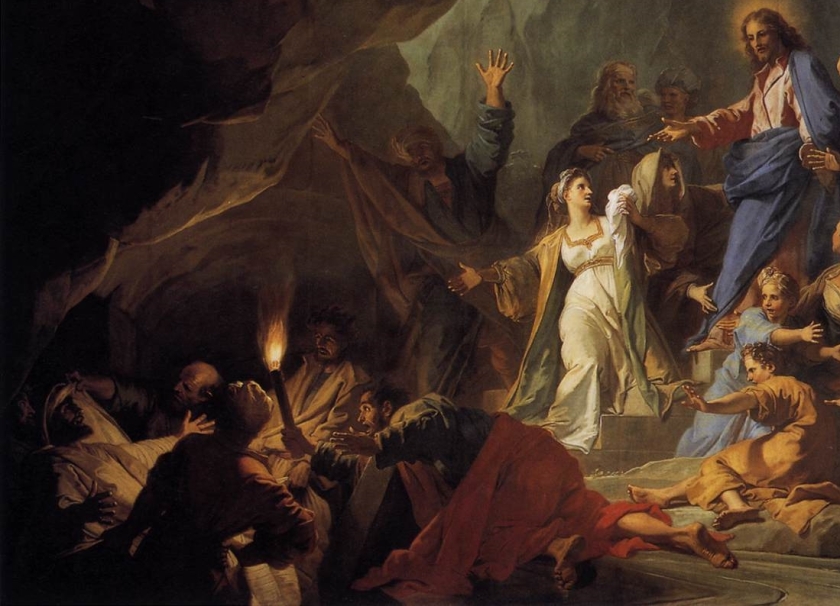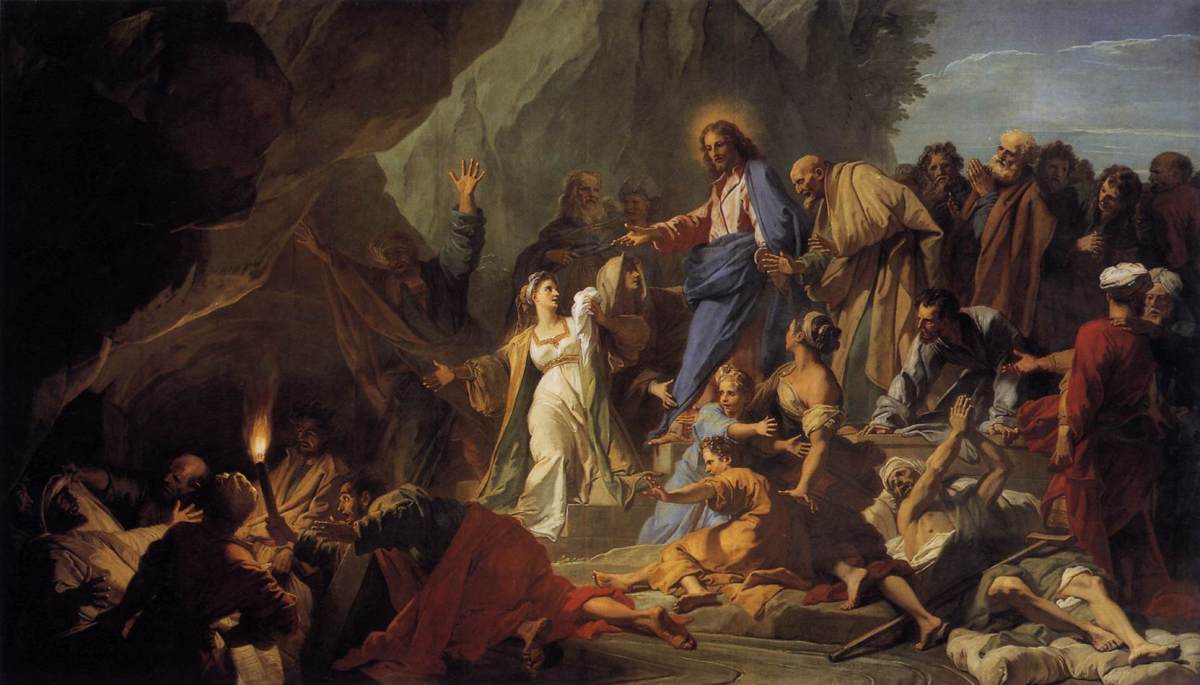Science: “The earth is 4.5 billion years old.”
Old-Earth believing Christian: “I agree!”
Science: “There is no such thing as coming back to life after you are dead.”
Old-Earth believing Christian: “Science is wrong! Jesus was raised from the dead!”
Why do you believe the earth is 4.5 billion years old (if you are an old-earth creationist or evolutionist)? For those of you who are Christians, what is the compelling reason that you have chosen to agree with those who claim this is how old the world is?Clear thinking and honesty in our conclusions is essential to any ultimate issue answer. Just as it is with this one. By believing the earth is 4.5 billion years old, you’ve made a choice to acknowledge evolutionary theory claims as authoritative. Believing an age of the earth of 6,000 years is to acknowledge the Bible, revealed truth, as authoritative. Both positions are answering the ultimate-issue question, “where did I (we, you, us) come from?”
Clarity and honesty also require an acknowledgment this is not an argument for anti-intellectualism or anti-rationalism. For a person to believe the earth is only 6,000 years old is neither anti-rational nor anti-intellectual.
Let me state that as strongly as I can. It is unbiblical to believe we must set aside intellect and “just believe”. It is anti-biblical to state we do not need rational arguments. God is both the author (source) of intellect and of reason. He calls us to use our ability to reason and to be rational.1 When Jesus Christ was asked “What is the greatest command?”, His response clearly showed the design of God was to use our intellect as an essential and inseparable part of our worship of Him. He stated,
“You shall love the Lord your God with all your heart and with all your soul and with all your mind.”2
To claim we must give up good thinking to believe God is to be guilty of a crisis of authority just like claiming we must set aside belief and trust our intellect alone.
When it comes to the age of the universe and the age of the earth, some will disagree, and claim we can hold to a 4.5 billion age of the earth and still do so under an authoritative word of God. They invoke a hermeneutic of scripture which claims the times and events in Genesis 5 are incomplete. Or, in some way not to be used as literal times. This claim often invokes an argument that the ages of the patriarch’s listed in Genesis 5 are not be meant to represent real time periods. This old-earth hermeneutic requires that God incorporated these dates with some other purpose than to represent dates. In other words, God was not clear. Therefore, we can look to human reason for clarity. This creates a crisis of authority as God’s Word is made subject to man’s need for a different meaning than what the text says.
Yet, when science also claims there is no resurrection from the dead, the old-earth hermeneutic shifts. Now we can accept God’s word as authoritative. Science, however, doesn’t agree. Science doesn’t turn to the old-earth hermeneutic and say, “Oh, OK. As long as you are now talking about resurrection from the dead, we’ll agree that could happen.” But, that doesn’t happen. There is a clear disagreement between science and the clear claims of the text. We are faced with deciding which to choose. Which do we believe. Will we challenge the authority of God and claim the decision about what is true is up to us?
There are other historical accounts in the Bible of people dying and being raised back to life. The resurrection of Lazarus from the dead is one particularly important example.3 Science claims this does not, cannot, did not occur. Just like creation in six-days only 6,000 years ago. “Didn’t happen”, says science. “No rational person believes this”, demands science. We have a choice of making ourselves the authority for truth or confessing revealed truth for what it is. Just as did the people who witnessed the resurrection of Lazarus. Or, those who heard about it. Lazarus’ resurrection made the religious leaders very angry, because it caused people to believe that Jesus was Who He said He was – God.

By the way – why did Jesus raise Lazarus from the dead? He didn’t have to from any human standpoint. There wasn’t some kind of Biblical law Jesus was upholding. In actuality, Jesus was superseding the physical, natural “laws” or more properly, physical natural processes. Why did He do this? In both John 11 (the account of the resurrection of Lazarus) and John 12 (the Pharisees planning to kill Lazarus because his resurrection was causing people to follow Jesus)4 show the purpose was to reveal Who Jesus Was – so that we would believe.
Science also tells us there is no such thing as sin. Moral relativism teaches that right and wrong are constructs of culture and individuals. It can shift and change to whatever whim we desire. Because, after all, we are the highest authority. Science challenged and, in their minds, threw down the authority of God, and stepped into that place.
However, the concept of sin requires acknowledgment of an external ultimate authority that has revealed what is necessary to not sin. Someone or something that exists outside of ourselves that is the source of knowing what is right and wrong. An authority external to ourselves.
Throughout the history of the church, there have been tools to help us understand doctrines like the nature of sin. A recent tool, The New City Catechism, identifies sin, as “rejecting or ignoring God in the world he created, rebelling against him by living without reference to him, not being or doing what he requires in his law—resulting in our death and the disintegration of all creation.”5 Rebellion against authority, or denial that an authority exists, doesn’t make that source of authority cease to exist. It simply produces a crisis of authority in the rebellious creature.
There are two consequences in agreeing with science that the earth is 4.5 billion years old. The first is confusion related to knowing what is true. The second is a challenge to the Author that He isn’t authoritative regarding what He has said. Both of these have a negative impact on the Gospel.
[1] “Come now, let us reason together, says the LORD: though your sins are like scarlet, they shall be as white as snow; though they are red like crimson, they shall become like wool. Isaiah 1:18 Return to text
[2] Matthew 22:37, Mark 12:30, Luke 10:27 Return to text
[3] John 11:43-44. The greater story is found in John 11:1-45. Return to text
[4] When the large crowd of the Jews learned that Jesus was there, they came, not only on account of him but also to see Lazarus, whom he had raised from the dead. So the chief priests made plans to put Lazarus to death as well, because on account of him many of the Jews were going away and believing in Jesus. John 12:9-11 Return to text
[5] New City Catechism, No. 16, “What is sin?”, Copyright 2017 by The Gospel Coalition and Redeemer Presbyterian Church, published by Crossway, http://newcitycatechism.com/new-city-catechism/#16, accessed March 5, 2018. Return to text



